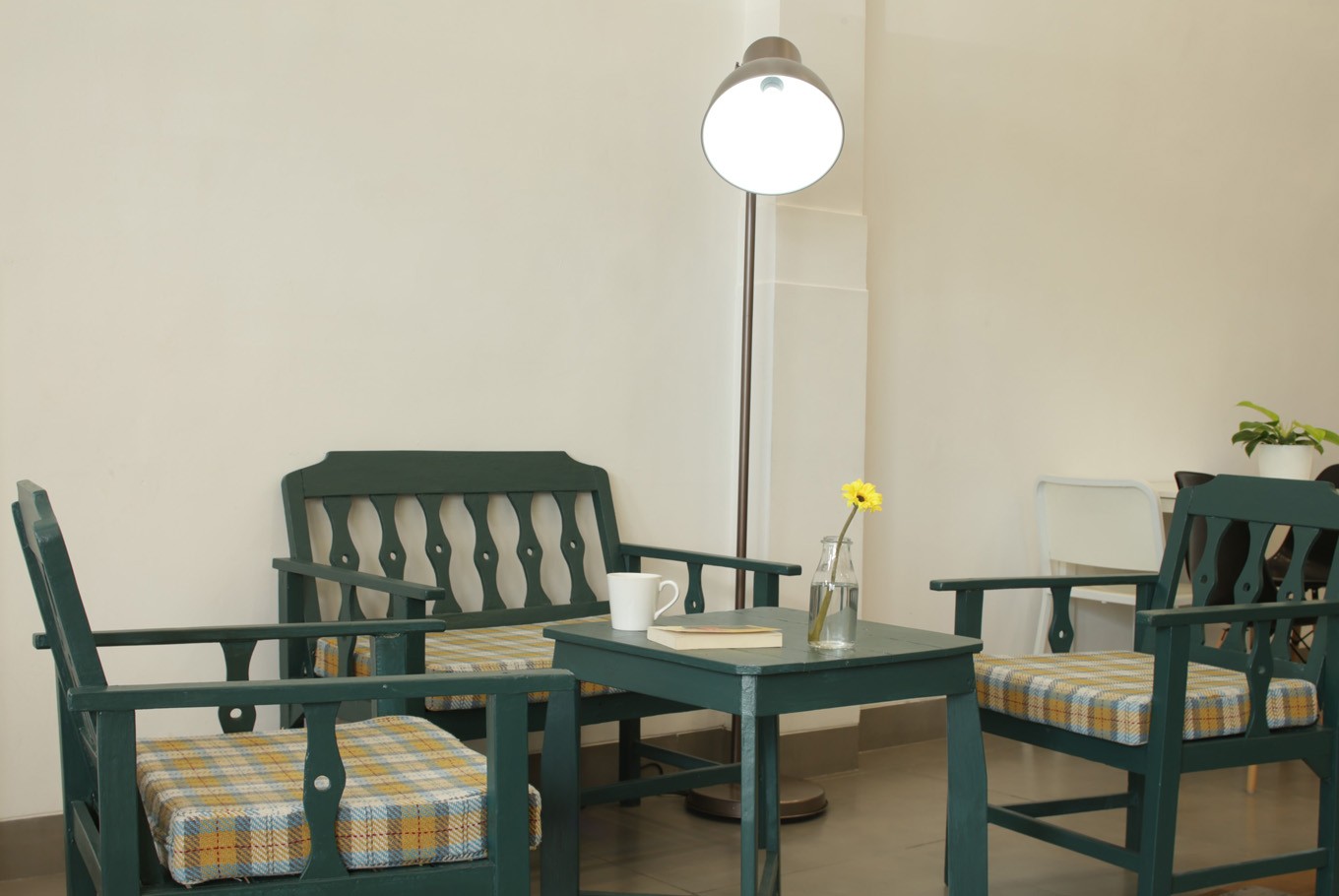Popular Reads
Top Results
Can't find what you're looking for?
View all search resultsPopular Reads
Top Results
Can't find what you're looking for?
View all search resultsNew co-working space aims to build user-driven communities
Change text size
Gift Premium Articles
to Anyone
T
he term “co-working space” usually refers to a commercial common space used mostly by freelancers or entrepreneurs to work and share ideas with professionals from various fields. Yet, new co-working space Ke:Kini in Jakarta focuses more on building new communities.
As a part of Rumah Bandar (houses built in the same style of architecture) built on Jl. Cikini Raya, Central Jakarta around the 1930s, Ke:Kini co-working space takes the form of an antique Indonesian house with two floors, bearing a resemblance to neighboring eateries Bakoel Koffie Cikini and Kedai Tjikini. Visitors are greeted by a blend of homey and modern interior design with Batavian-style architecture.
(Read also: Space: Coworking Unconference Asia)
According to Ukke R. Kosasih, one of Ke:Kini’s founders and board member of Indonesia for Humanity (IKa), the working space that operates from 9.00 a.m. to 9.00 p.m. daily was primarily built to connect people with various interests and let them engage in new relationships, so that there will be new communities formed as a result.
“Seeing that there is a need for a common space that is located in a strategic place and could be accessed by many, we started to think about creating a co-working space,” Ukke said.
She also explained that Ke:Kini was made to support IKa’s activities, as well as to serve as a new initiative in social movements. “Social movements should not depend on donors anymore. We need to create our own resources. Business is one of the ways to do so,” she said, citing the reason why she and fellow activists Ratna Fitriani, Kamala Chandrakirana and Anik Wusari decided to create Ke:Kini.
As to why the founders chose to use a building in Cikini, another Ke:Kini founder Kamala Chandrakirana stated that it was because they wanted to help preserve historical buildings in Jakarta. Prior to being transformed into a co-working space, the first floor of the building was used as IKa’s office and the second floor was a pub.
“This place was severely damaged. We are trying to return it to its original state and make it functional,” she said. Another reason was ease of access and close vicinity to cultural center Taman Ismail Marzuki. “We also wish to bring the cultural life back into Cikini,” she stated.
(Read also: Aromas, music help reduce stress in workplaces)
However, both Ukke and Kamala stressed that Ke:Kini is not exclusively for activists or people interested in humanitarian issues. Up until now, more than 1,700 people have used the space since it began operations May 9. Events have ranged from humanitarian to technological activities.
“As long as they share the same goal of creating a better Indonesia, everyone is welcome at Ke:Kini,” Ukke said.
The Ke:Kini building is divided into several parts, including a veranda on the first floor and small, medium, as well as large meeting rooms on the second floor, which are attached to different usage prices. Presently, the co-working space is also running a social project named Adopsi Ruang (adopt-a-space) for people who want to help fund activities and workshops in Ke:Kini. (asw)











